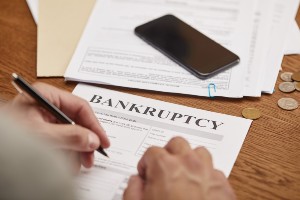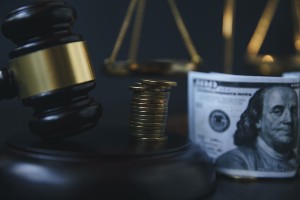Bankruptcy and Private Student Loans
Student loans are often granted by the government, but it is possible to borrow money to pay for college tuition from private lending institutions. If you are considering loans to help offset the cost of education, it’s important for you to understand the pros and cons of student loans. They can be useful, but they can also create a number of financial problems.
Unfortunately, some student borrowers learned this the hard way. As a result of their student loans and other financial burdens, they are now facing bankruptcy. What do you need to know if you borrowed money for college from a private lender and you are now considering bankruptcy?
Default
What constitutes “default” on a private student loan can be different than what default means when you have borrowed from the government. Federal law defines what default means on a federal loan, so the standards are consistent across the board. This is not the case with private loans and each borrower is allowed to create their own terms for their loans. It’s important you read the terms of your private student loan carefully before accepting the loan. If you are already locked into a loan, an attorney can review the terms and help you determine when default is an issue.
Collection Powers Vary
Federal student loan lenders do not need to go to court to take action. They have the authority to garnish wages, seize bank accounts, and take other aggressive measures to collect the money owed to them without permission from the courts. This is not the case with private student loan lenders who are limited in their collection powers. They must receive a court order to do any of these things. Like lenders of other private loans, they must file a lawsuit and win a judgment before seizing any assets.
Things Can Get Sketchy
Since there is confusion about federal versus private student loans, third-party collectors tend to misunderstand or take advantage of the situation. You may be told by a debt collector that your assets will be seized without permission from the court. However, if your loan is private, this will not be the case. If you are receiving illegal threats from third-party collectors, there are legal options available to help you with your situation. You should speak to your bankruptcy attorney about the threats.
Statute of Limitations
Like most unsecured debts, private student loans have a statute of limitations. Eventually, the lender will lose the power to file a lawsuit. You should understand issues related to timing on private student loans to avoid resetting the statute of limitations.
You can learn more about the statutes of limitation on student loans here.
Borrowing money for college can be a great way to pay your tuition, but it can also create financial turmoil. If you are struggling with any of your student loans, private or federal, we can help. For more information, contact the Law Offices of Robert M. Geller at 813.254.5696.



























![Signs That You May Need to File Bankruptcy [Infographic]](https://djml3wkzi26ea.cloudfront.net/wp-content/uploads/2021/01/signs-chap7-v-chap13.jpg)
![How To File for Bankruptcy [Infographic]](https://djml3wkzi26ea.cloudfront.net/wp-content/uploads/2020/07/bankruptcy-steps-infographic-web.jpg)










